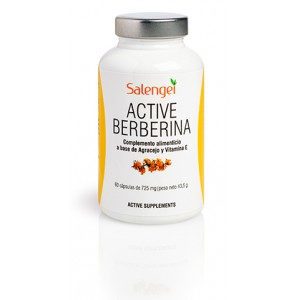Description
Active Resveratrol is free of yeasts and genetically modified bacteria, which makes it a maximum-quality safe product. It is made exclusively of natural, purified trans-resveratrol. It is free of oat bran, quercetin, and other additives that could block the recirculation of important resveratrol metabolites and inhibit the activation of the SirT gene and so reduce its effect.
Important studies support the effectiveness of this compound as a preventive treatment of various illnesses related to both glucose and cholesterol metabolism, as well as a coadjuvant treatment of weight loss.
Indications
Weight control
Cholesterol control
Dosage / Suggested use
Content
Nutrition facts
| Maximum daily dose: 1 capsule | |
|---|---|
| Polygonum cuspidatum extract (of which, 95% Trans-Resveratrol) |
500 mg |
Benefits of Resveratrol
Resveratrol is being used in numerous studies to see what its effects in animals and humans are. In experiments with rats and mice, beneficial effects such as anti-cancer, anti-inflammatory, anti-fibrotic, reduced blood-sugar levels and cardiovascular benefits have been reported.
Resveratrol induces expression of several genes such as FOXO1, FOXO3a (related to longevity) and PBEF (involved in regulation of plasma glucose levels). Other studies have also shown its role as sirtuin activator (SirT1, Sirt3, SIRT4).
There are many studies on the beneficial effects of resveratrol, independently of whether they are activators of sirtuins or not.
In one of the studies published in Nature, mice that were subjected to a diet very rich in fats but were also supplemented with high doses of resveratrol, did not suffer some of the worst consequences of obesity, such as liver degeneration, predisposition to diabetes and other symptoms of aging that often lead to premature death, and their lifespan was extended compared to those who did not receive the supplement.
In another experiment, published in Cell, researchers noticed a significant increase in energy expenditure in mice treated with resveratrol, resulting in their protection against obesity and diabetes. With this substance, the muscle fibres use more oxygen, both during exercise, in which greater resistance is confirmed, as in periods of inactivity. Delving into the reason for these effects, scientists bumped into mitochondria – which are responsible for energy production in muscles, and in whose cells they are found in large quantities. They found that, indeed, proteins related to mitochondrial function are activated.
As for its role as an ergogenic substance in sports, it has been shown in animal experiments that it improves the physical capacity of animals subjected to a diet enriched with this product. Human studies, however, are needed to clarify its true role in physiology and sports nutrition. Another study suggests that resveratrol may be counterproductive in people receiving chemotherapy with paclitaxel (a breast cancer management drug) due to their metabolism, as it interacts with resveratrol.
Resveratrol shows promising results in preventing diabetes, colorectal cancer and Alzheimer’s. It is also being used in numerous studies to study its effects on animals and humans. In order to be neutral and not seem commercially biased, if you want to receive the abstracts of these and other publications we suggest that you request them and we’ll be happy to provide them.





